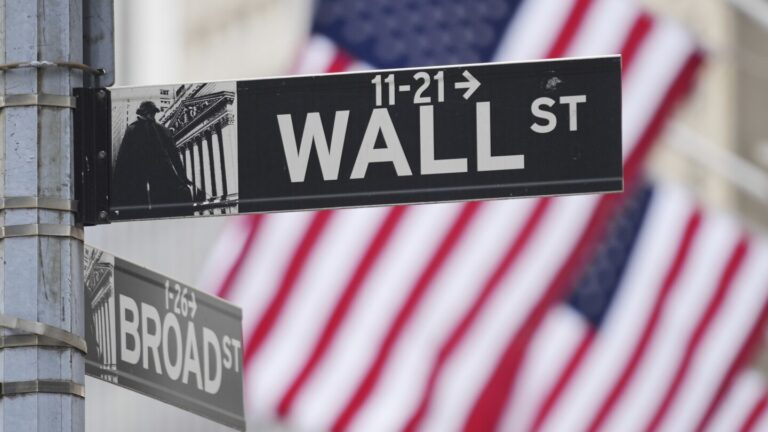BANGKOK (AP) — Asian markets and U.S. futures tumbled Thursday following U.S. President Donald Trump’s announcement of big increases in tariffs on imports of goods from around the world.
Tokyo’s Nikkei 225 index dipped more than 3.4%, but recovered slightly. It was down 2.9% at 34,699.52.
Trump said he was imposing a 24% “reciprocal tariff” on Japan, one of the United States’ closest allies.
South Korea, also an ally, was hit with a 25% tariff. Its benchmark Kospi slumped 1.9% soon after the opening, to 2,459.30.
In Australia, the S&P/ASX 200 fell 1.8% to 7,793.10.
The future for the S&P 500 dropped 3% while that for the Dow Jones Industrial Average lost 2%, auguring potential losses when U.S. markets reopen on Thursday.
On Wednesday, U.S. stocks whipped through another dizzying day before Trump’s unveiling of his “Liberation Day” tariffs.
The S&P 500 rose 0.7% to 5,670.97 after careening between an earlier loss of 1.1% and a later gain of 1.1%. It’s had a pattern this week of opening with sharp drops only to finish the day higher.
The Dow Jones Industrial Average added 0.6% to 42,225.32, and the Nasdaq composite climbed 0.9% to 17,601.05.
Elon Musk’s Tesla helped knock the market around after initially falling more than 6% following a report that it delivered fewer electric vehicles in the first three months of the year than it did in last year’s first quarter. It closed 5.3% higher.
Tesla is one of Wall Street’s most influential stocks because of its immense size, and it’s faced backlash due to anger about CEO Elon Musk’s leading the U.S. government’s efforts to cut spending.
On Wall Street, Newsmax fell 77.5% in its third day of trading to give back some of the meteoric gains from its debut at the start of the week. It surged 735% Monday and then another 179% on Tuesday.
Several airlines, meanwhile, flew higher to recover some of the sharp losses taken recently on worries that tariff-weary customers will fly less. United Airlines climbed 4.6%.
Financial markets around the world have broadly been shaky lately because of uncertainty about Trump’s trade war. He has said he wants tariffs to make the global system more fair and to bring manufacturing jobs back to the United States from other countries. But tariffs also threaten to grind down growth for the U.S. and other economies, while worsening inflation when it may be stuck above the Federal Reserve’s 2% target.
After the U.S. market closed, Trump declared a 10% baseline tax on imports from all countries and higher tariff rates on dozens of nations that run trade surpluses with the United States. The president held up a chart while speaking at the White House, showing the United States would charge a 34% tax on imports from China, a 20% tax on imports from the European Union, and 32% on Taiwan.
Trump earlier announced 25% tariffs on auto imports; levies against China, Canada and Mexico; and expanded tariffs on steel and aluminum. Trump has also put tariffs against countries that import oil from Venezuela and plans separate import taxes on pharmaceutical drugs, lumber, copper and computer chips.
Treasury yields swung in the bond market, echoing the indecision seen in the stock market.
The yield on the 10-year Treasury fell as low as 4.11% in the morning from 4.17% late Tuesday and from roughly 4.80% early this year. But it later rose to 4.18%. Higher yields can indicate higher expectations for the economy or for inflation.
In other dealings early Thursday, U.S. benchmark crude plunged $2.08 to $69.63 per barrel. Brent crude, the international standard, gave up $2.06 to $72.89 per barrel.
The dollar fell to 148.07 Japanese yen from 149.28 yen. The euro rose to $1.0897 from $1.0855.
___
AP Business Writers Stan Choe and Matt Ott contributed.

